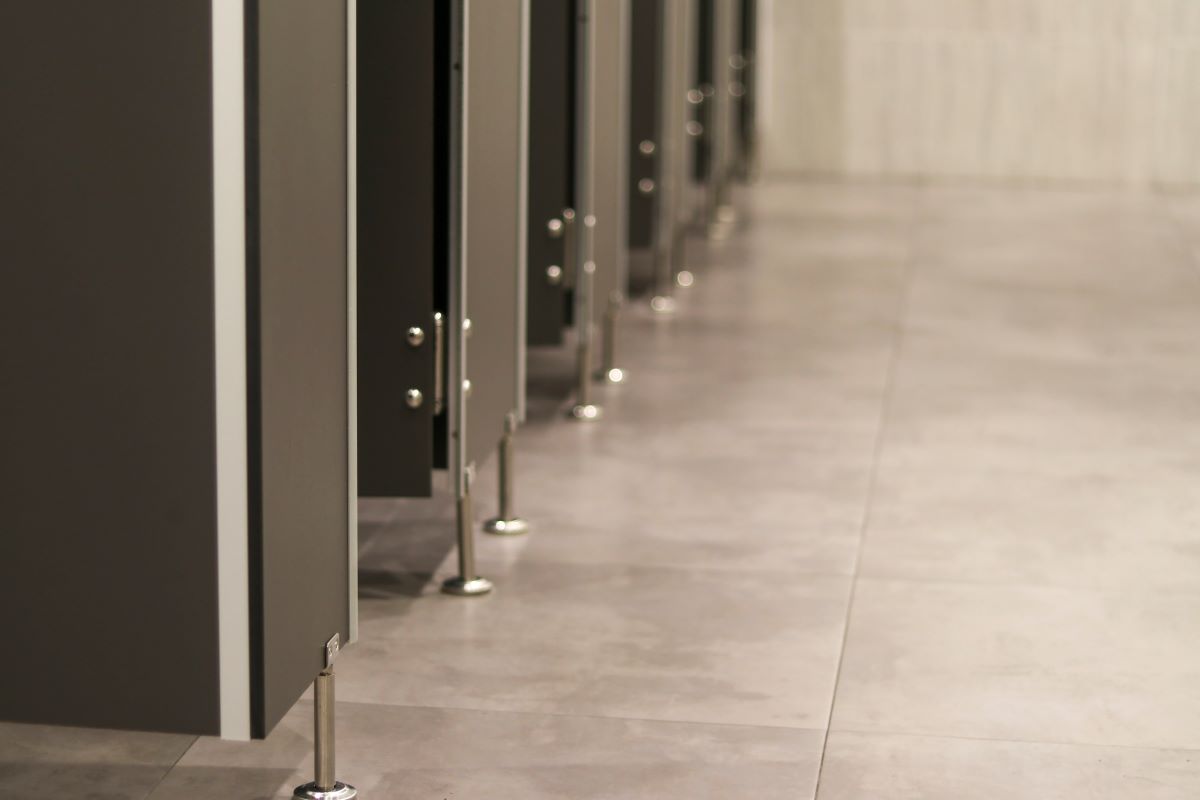A Conspicuously Absent Amenity Used to Be Ubiquitous
If you’re spending a pleasant day in almost any American city, you may notice many signs bearing the same message:
“Bathroom for customers only.”
It’s a common experience to find yourself frantically buying a stick of gum cross-legged at the checkout counter in exchange for the code to that promised land. Most of us never question this setup. But don’t you think it’s a little weird?
Why should we be forced to buy something we don’t need just to perform a basic human function? Why interrupt a picnic in the park with a frantic search for a CVS? Do we really have to choose between catching the next train and finding a gas station bathroom within the next few blocks?
It should be a good thing for everyone when public bathrooms are available wherever people need them. Public bathrooms increase convenience, cleanliness, and health compared to the alternative. So, why don’t we have them?
San Diego Wants to Overturn 50-year Ban on Paid Public Bathrooms
The city of San Diego is attempting to get around a state-level ban on paid public toilets that has been on California books since the 1970s. They say that charging a quarter per use of public bathrooms will allow them to build up funds to construct more public bathrooms across the city.
Technically this would lead to more public bathrooms for the general public. However, it could take away unhoused people’s access to the few public bathrooms available to them now.
The price of 25 cents may not seem like much, but for many people living without housing, every cent counts. Plus, in our increasingly cashless society, it’s inconvenient enough for someone with access to housing, transportation, and a bank account to keep exact change on hand. That inconvenience is multiplied for someone who may not have access to any of those things.
Advocates for paid toilets say they could implement a “toilet stamp” program to ensure that the poorest people still had bathroom access without paying for every trip. On paper, that’s a fine idea. But seeing how government programs designed to assist poor and unhoused people have so far been smothered in bureaucracy and unable to reach everyone who needs assistance, it’s hard to imagine how this proposal would be any different.
Public Bathrooms Are a Thing of the Past
In the 19th century, public toilets were a point of pride in US cities. As we understood more about sanitation and its role in reducing disease, luxurious and accessible free public toilets became all the rage. But the infatuation wouldn’t last.
As early as the 1920s and 30s, public opinion started to sour on public bathrooms, as they became seen as havens for whoever was the undesirable group du jour. Public bathrooms started being shuttered for various reasons as the decades wore on.
First, they said the bathrooms attracted members of the LGBTQIA+ community, and we couldn’t have that. Next, they allowed access for Black Americans; we couldn’t have that. Now, they allow access to poor and unhoused people, and we can’t have that.
All along the way, the general public and the people making the decisions have been perfectly willing to shoot themselves in the foot to spite someone else. So, gradually, public bathrooms have all but disappeared. Every day Americans were content with their own dwindling access as long as it meant that the othered group of choice didn’t have access either.
The Core of the Issue
This pattern extends far beyond the public bathroom issue. Once you become aware of it, you’ll start to see it everywhere. In short, this is why we can’t have nice things: because we don’t want marginalized people to have nice things. And we’re willing to torpedo everything to ensure that doesn’t happen.
From free healthcare to housing for all to food stamps, the average person with political power just can’t stand to see a group they consciously or subconsciously consider to be lesser than themselves get something that they “don’t deserve.”
We’re perfectly willing to sacrifice our own access to that thing because we understand that we’ll be able to use the resources we do have to still access that thing more easily than marginalized groups could. And so, the “social order” is preserved, and everyone suffers more than they need to, with oppressed people bearing the brunt.
When it seems like a proposal that would help everyone out is inexplicably a hard sell, this is usually the impulse that’s getting in the way of the common good. We need to get over this. We need to grow beyond the emotional intelligence level of a toddler and realize that this spitefulness is pointless. It’s keeping us all stuck in the past and works to uphold the systems of oppression that have been grinding away for generations.
If we want to dismantle those, we must dismantle this impulse wherever we find it – in ourselves, our loved ones, and our representatives.
There are way too many people today who are more interested in preserving their own position within society than making things better for everyone. They are not interested in evening out the playing field because they’re really enjoying their advantage. At a minimum, we must keep these people out of political power.
If your representative matches this description, vote them out. And in the meantime, let them know which policies you support, why, and what effect their actions will have on their re-election campaign. When all they care about is their own position, you can try to change hearts and minds all day with eloquent arguments and well-reasoned points. And by all means, try it. But what’s likely to work best is relying on their own self-interest.











